When it comes to energy independence on Wisconsin’s tribal reservations, ‘actions are more than words.’ How one tribe is taking action.
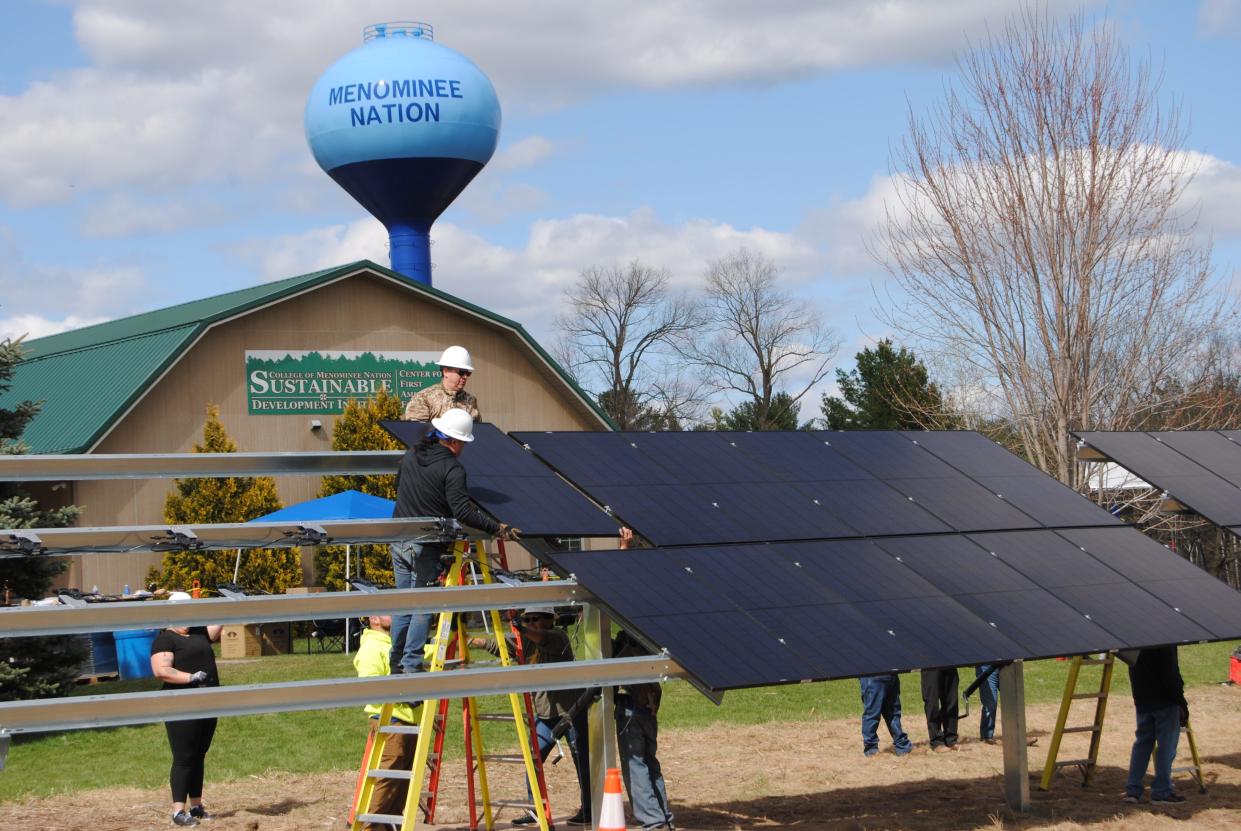
KESHENA - Dozens of volunteers learned how to install and operate solar panels on the Menominee Reservation last week as part of the tribe’s efforts to achieve energy independence.
The training took place at the College of Menominee Nation campus in Keshena and the solar panels installed will be used to power one of the college’s buildings.
“It was exciting to see how quickly things are progressing,” said Menominee Chairwoman Gena Kakkak in a statement. “It’s been a short time from when we approved funding to work towards renewable energy and partnered with Indigenized Energy. Today, we see the plan and development moving forward.”
In August, the Menominee Nation started working with Indigenized Energy, which is based on the Standing Rock Reservation in North and South Dakota.
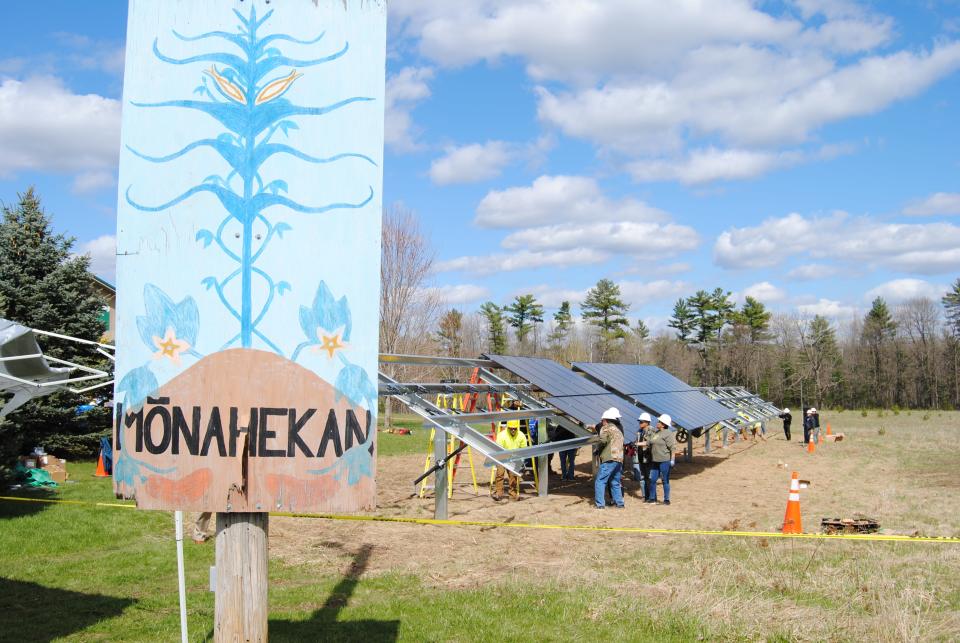
The organization’s founder and executive director, Cody Two Bears, said the initiative was born from the Indigenous-led movement to protest and stop and the Dakota Access Oil Pipeline project on Standing Rock in 2016.
Indigenized is looking to help tribal nations across the U.S. become energy independent and help move societies from dependence on fossil fuels, which harm the environment, Two Bears said.
The training at the college will help empower local community members with the skills to develop and maintain solar energy, rather than having an outside company install the panels and then leave, he added.
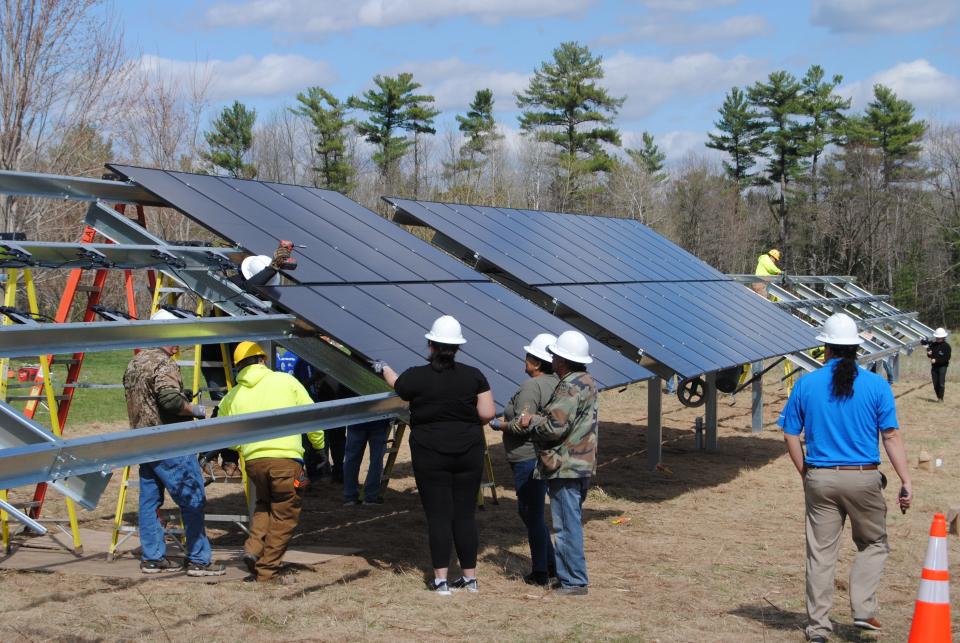
Roxanne Johnson, an elder member of the Ho-Chunk Nation who lives on the nearby Stockbridge-Munsee Mohican Reservation, said she signed her and her husband up as soon as she heard about the training program.
“It’s an example of what can be done,” she said. “I’m very excited by what the Menominee are doing because actions are more than words.”
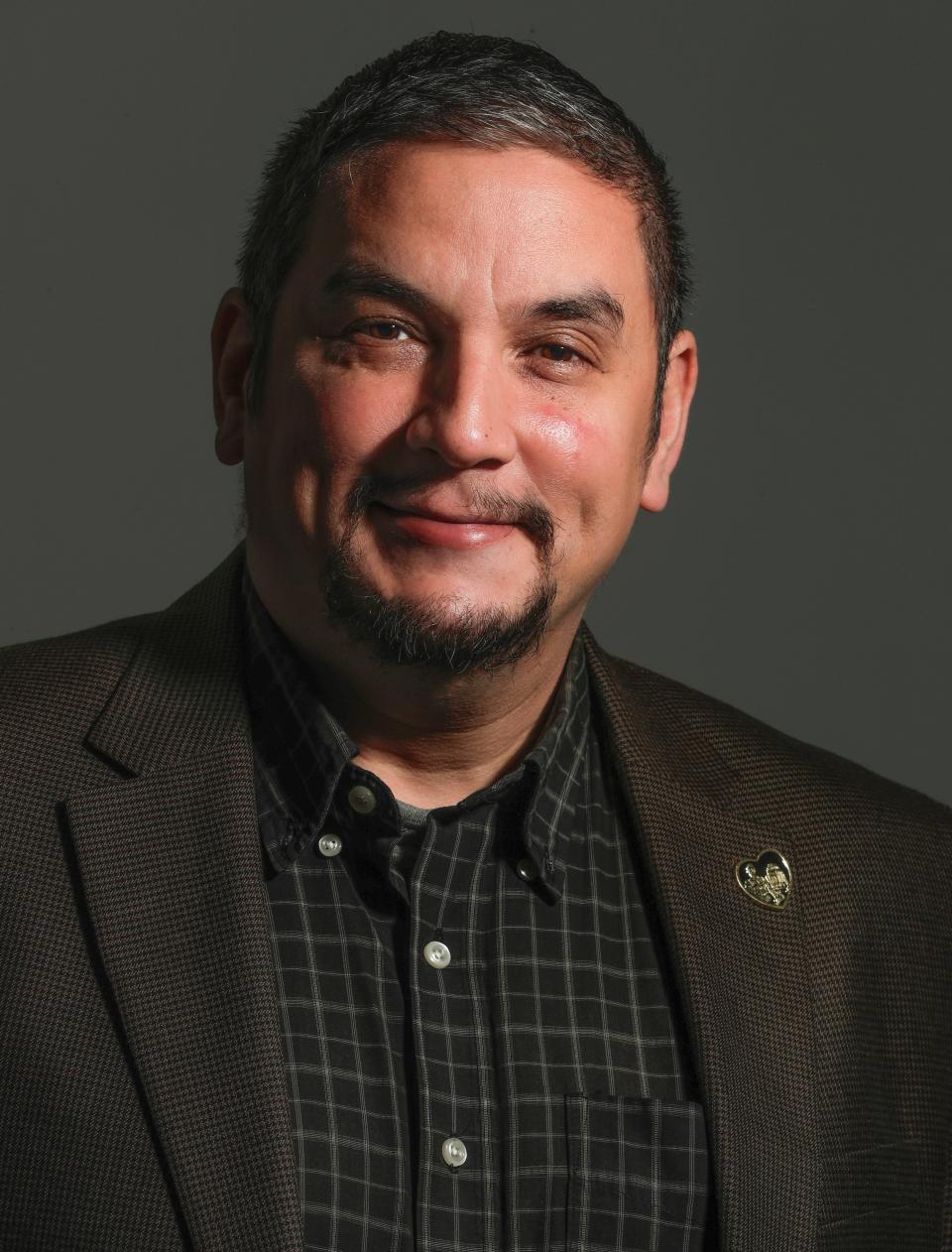
Sign up for the First Nations Wisconsin newsletter Click here to get all of our Indigenous news coverage right in your inbox
Volunteers were learning a lot hands-on and she’ll be sure to pass the knowledge on to others in her community, Johnson said.
She and her husband, Leonard, who’s a member of the Stockbridge-Munsee, have 11 children between them and are teaching them about how to work with renewable energy, she added.
“This knowledge will take them into the future,” she said.
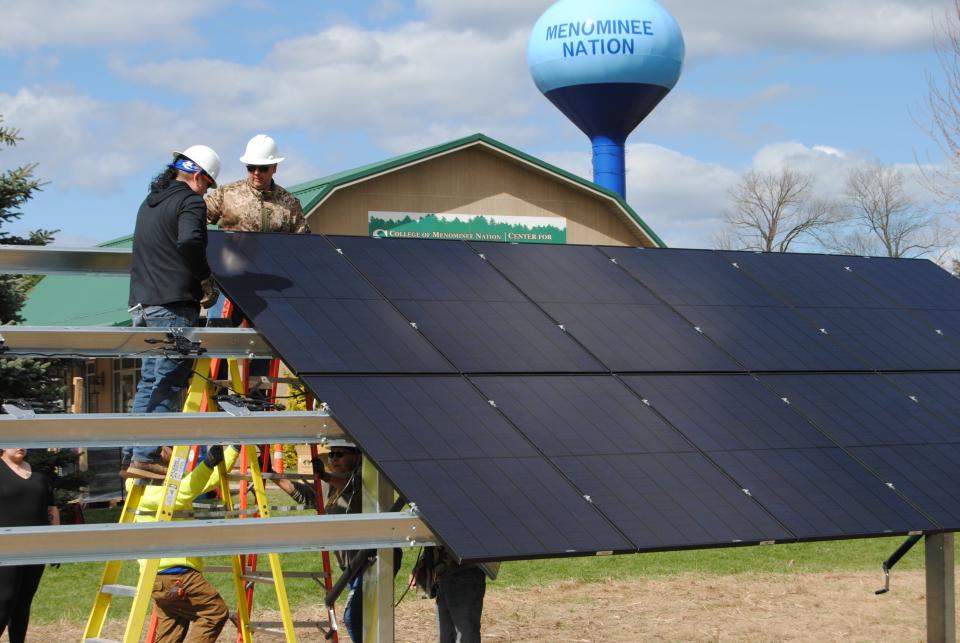
Besides installing and maintaining the panels, Two Bears said the students also learned which angle the panels should be placed for the best results in that part of the world.
The plan is to eventually work with Menominee Nation to build its own tribal reservation-wide solar energy utility service, he said.
“Cody and his team are helping us understand our unique energy opportunities and supporting us as we make long term plans that will create jobs, save energy, and help us do our part to protect our lands and waters,” said former Menominee Chairman Ron Corn Sr., who sits on the Indigenized advisory board.
Two Bears said he is also reaching out to other tribes in Wisconsin to expand the solar energy potential.
Read more:
Potawatomi Farm: At Bodwéwadmi Ktëgan, this Wisconsin tribe is using ‘circle of life’ techniques to feed its people. Here’s how.
Tribes on Apple Maps: Tribal lands in Wisconsin now visible on Apple Maps, including landmarks and places for Native cuisine
Retail cannabis: A tribe in northern Wisconsin is pursuing retail cannabis. Here's why many tribes see the potential industry as a way to diversify revenue.
Frank Vaisvilas is a Report for America corps member who covers Native American issues in Wisconsin based at the Green Bay Press-Gazette. Contact him at fvaisvilas@gannett.com or 815-260-2262. Follow him on Twitter at @vaisvilas_frank.You can directly support his work with a tax-deductible donation online at GreenBayPressGazette.com/RFA or by check made out to The GroundTruth Project with subject line Report for America Green Bay Press Gazette Campaign. Address: The GroundTruth Project, Lockbox Services, 9450 SW Gemini Drive, PMB 46837, Beaverton, Oregon 97008-7105.
This article originally appeared on Green Bay Press-Gazette: Wisconsin Indian tribe pursues energy sovereignty with solar power

